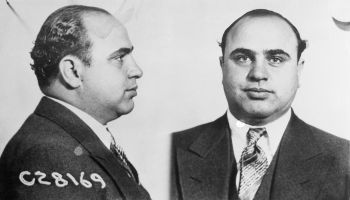Capital Punishment: Should it be Called Legalized Murder?
By Dina Estelle Williams
Many are rethinking their feelings about capital punishment after the execution of Troy Davis, who despite substantial doubt; worldwide protests; recanted eyewitnesses stories; and absence of DNA evidence, was lethally injected on September 21, 2011. Davis maintained his innocence until his death. Although current public support for the death penalty is substantially lower than it was in the eighties and nineties (as noted by a 2010 Gallup poll), the Troy Davis case could start a major movement to abolish the death penalty.
2010 Gallup poll showed 64% of Americans favored the death poll in cases of murder, while 29% opposed it.
Opponents
Amnesty International and some religions are against the death penalty based on moral grounds. Others oppose and believe the system is seriously broken and flawed; not to mention arbitrarily applied since the death penalty imposed is contingent on such factors as race; geography; legal representation; and the prosecutor’s discretionary decisions.
On September 13, 2011, Barbara Anderson Young wrote a letter to the District Attorney expressing her family’s opposition to the death penalty. Ms. Young noted, “Our loss will not be lessened by the state taking the life of another,” adding, “Executing James’ killers will not help balance the scales. But sparing them may help to spark a dialogue that one day will lead to the elimination of capital punishment.” Ms. Young is the sister of James Anderson who was brutally beaten by White teenagers before being driven over with a truck in Jackson, MS on June 26, 2011. Despite the family’s efforts, Deryl Paul Dedmon, 19, was still charged with capital murder.
Click here to read Young’s letter.
Proponents
Supporters of capital punishment include victims’ rights groups; law enforcement agencies; and organizations such as “Justice for All,” Proponents purport the death penalty preserves law and order; honors the victim; deters crime; consoles grieving families; and ensures criminals never have an opportunity to cause future tragedy.
Abolishment
The death penalty was reinstated in 1976 after being abolished in 1972 by the United States Supreme Court who reasoned that it was being arbitrarily applied. The Troy Davis execution evidenced that capital punishment in the United States is still applied unfairly and arbitrarily.
According to Amnesty International, in 2011:
- 96 countries had abolished capital punishment altogether;
- 9 had done so for all offences except under special circumstances;
- 34 had not used it for at least 10 years or were under a moratorium; and
- 58 retained the death penalty in active use.
Though many nations have abolished capital punishment, more than 60% of the world’s population resides in countries where executions exist. The four most populous countries—China, India, USA, and Indonesia—continue to apply the death penalty (although it is rarely used in India and Indonesia).
Sixteen states and the District of Columbia have abolished the death penalty, with Illinois coming on board July 1, 2011, when it signed a bill into law to reject capital punishment. New Mexico abolished capital punishment in March 2009; however, two inmates remain on death row.
Race and the Davis Execution
Several social media comments centered on race being a factor in the Troy Davis execution; that he would not have received the death penalty if a Black man was murdered, or if he was a White man. However, the majority of those who possessed the power and authority to spare Davis’ life were Black.
- The 12-member jury comprised 7 Black people.
- District Attorney, Larry Chisolm, is Chatham County, Georgia’s first Black DA (since January 2009).
- The Chair and Vice-Chair of the 5-member Georgia Board of Parole and Pardons are both Black.
- Justice Clarence Thomas, a Georgia native and the only Black person on the United States Supreme Court, denied a petition to grant Davis a stay of execution.
- President Barack Obama, the first Black person to serve as the President of the United States, could not grant Davis clemency for a state conviction.
Bottom line: the color of skin pales in comparison to the color of justice.
Georgia Board of Parole and Pardons: Chairman James E. Donald, Vice Chairman Albert Murray, L. Gale Buckner, Robert E. Keller and Terry Barnard (pictured l-r).
DNA Exonerations
According to the Innocence Project, an organization that works to have wrongly convicted prisoners, including death row inmates, exonerated based on newly available DNA tests:
- The first DNA exoneration took place in 1989
- There have been 273 post-conviction DNA exonerations in the USA
- 17 of the 273 people exonerated through DNA served time of death row
Posthumous Pardons of Executed Defendants
Despite spending time in prison for a wrongful conviction, it’s always great when the innocent receive a full pardon; yet undoubtedly distressing when that miscarriage of justice comes after the person has died in jail or was executed. As noted from the following list of posthumous pardons, most were received 60 years and beyond the actual conviction date. For a detailed listing, click here.
- Colorado, Joe Arridy; Executed in 1939; Pardoned in 2011
- Georgia, Lena Baker; Executed in 1945; Pardoned in 2005
- Illinois, Adolph Fischer; Executed in 1887; Pardoned in 1893
- Illinois, George Engel; Executed in 1887; Pardoned in 1893
- Maryland, John Snowden; Executed in 1919; Pardoned in 2001
- Massachusetts, Nicola Sacco; Executed in 1927; Pardoned in 1977
- Massachusetts, Bartolomew Vanzetti; Executed in 1927; Pardoned in 1977
- Nebraska, William Jackson Marion; Executed in 1887; Pardoned in 1987
- Pennsylvania, John “Black Jack” Kehoe; Executed in 1878; Pardoned in 1979
- *South Carolina, Thomas Griffin; Executed in 1915; Pardoned in 2009
- *South Carolina, Meeks Griffin; Executed in 1915; Pardoned in 2009
- Illinois, Albert Parsons; Executed in 1887; Pardoned in 1893
- Illinois, August Spies; Executed in 1887; Pardoned in 1893
* Griffin brothers were great uncles of nationally syndicated radio show host Tom Joyner
Questions to Ponder:
- Can the United States of America really claim to be “the land of the free” when it still allows state governments to put people to death?
- Should State and Federal governments be trusted with life over death and have the power to kill its citizens?
- Are Blacks in authoritative roles afraid to support other Blacks for fear of being viewed as racist towards Whites?
- Why do inmates sit on death row for years, sometimes decades?
- Why do we trust governments to make a decision that cannot be taken back?
- Is not murder “cruel and unusual punishment?”
- Why does it take so long, often decades, to clear an innocent’s person name?
- Why are people executed amidst substantial doubt and lacking evidence?
- Why have 15 USA states and the District of Columbia abolished the death penalty?
- Will the death penalty again be abolished in all 50 States of the USA?
Solutions:
- Vote during EVERY election. Don’t wait for the presidential election. You can actually reach out and touch your local elected officials. Good luck with touching the POTUS!
- Serve on a jury. After the Davis execution, CNN analyst and TVOne host, Roland Martin, remarked, “If you care about this case [Davis], if you care about justice, don’t try to run out of jury duty. You may be the decision-maker as to whether someone will be put to death.”
- Practice peace, love, and forgiveness.
- Become proactive versus reactive.
- Stay informed.
- Donate your time, talent, and treasures to an organization that supports your views on capital punishment.
- Reflect on the last words of Troy Davis, “look deeper… so you can really find the truth.”
Sources:
- Amnesty International. http://www.amnesty.org/en
- Death Penalty Information Center. http://www.deathpenaltyinfo.org/
- Innocence Project. http://www.innocenceproject.org/
- National Coalition to Abolish the Death Penalty. http://www.ncadp.org/
- “Capital Punishment.” http://en.wikipedia.org/wiki/Capital_punishment
- Andersen, Diana (2002) “Joe Arridy.” Cañon City, CO. http://ccpl.lib.co.us/history_old/prisons/ArridyJoe.html
- Liberson, Gary. (2010-07-05). “The Uneven Hand of Justice.” http://www.huffingtonpost.com/gary-liberson/the-uneven-hand-of-justic_b_635631.html
- Northwestern Law: Center on Wrongful Convictions. http://www.law.northwestern.edu/wrongfulconvictions/exonerations/neMarionSummary.html
- http://www.gallup.com/poll/144284/Support-Death-Penalty-Cases-Murder.aspx
- Greenspan, Stephen PhD. (March 2011). “Posthumous Pardons Granted in American History” Distributed through the Death Penalty Information Center. http://www.deathpenaltyinfo.org/documents/PosthumousPardons.pdf
- Newport, Frank, (2010-11-08). “In U.S., 64% Support Death Penalty in Cases of Murder.”
- Sudan: Entertainment, Food, Languages, Places To Visit + More
- Libya: Entertainment, Food, Languages, Places To Visit + More
- Egypt: Entertainment, Food, Languages, Places To Visit + More
- Morocco: Entertainment, Food, Languages, Places To Visit + More
- Tunisia: Entertainment, Food, Languages, Places To Visit + More














